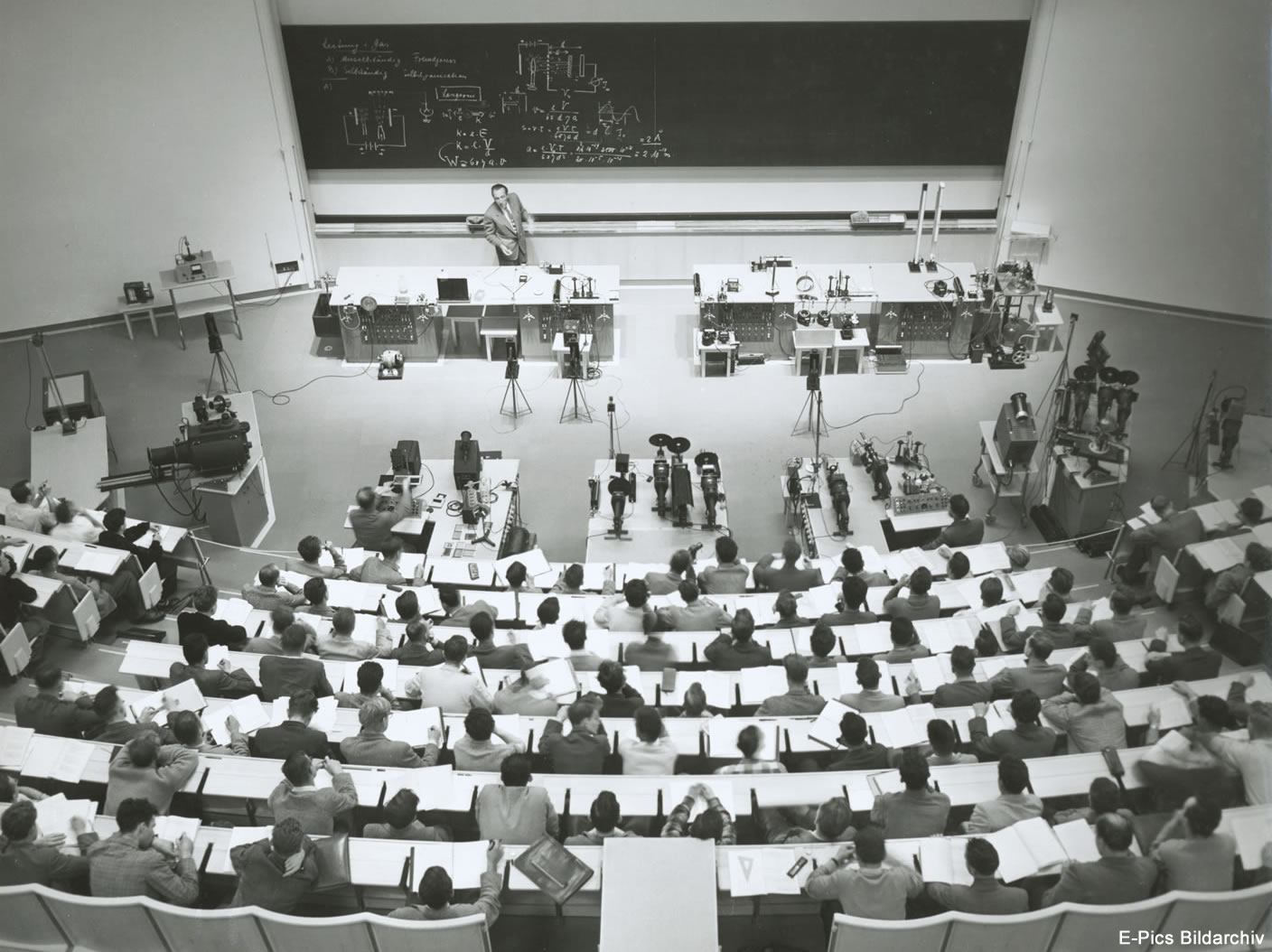Second Zurich period

After his initial hesitation, Wolfgang Pauli settled permanently in Zurich. He resumed his teaching and research activities in the 1946 summer semester and in October moved back into the house in Zollikon. In 1949 his efforts to become naturalised finally met with success. Within a short time Wolfgang Pauli was employing a group of ten or so theoreticians. He continued to act as a magnet for physicists from around the world and was one of the reasons for the shortage of space at the Physics Institute at ETH. Before 1952, the old physics building could be expanded and a new one erected to house the cyclotron facility constructed under the direction of Paul Scherrerby prominent Swiss firms. The trend towards ever larger research facilities finally led to the founding of the Conseil Européen pour la Recherche Nucléaire (CERN) in Geneva. Wolfgang Pauli also took part in the preparatory meetings, but the driving force on the Swiss side was Paul Scherrer.
Wolfgang Pauli – the "conscience of physics"
In the scientific community, Pauli's reputation as the ‘conscience of physics' was being consolidated. In controversies of theory he was regarded as the supreme authority. His colleagues both valued and feared his impartial criticism. His frequent international duties meant that Wolfgang Pauli had to take leave of absence several times, even during the semester. He was Visiting Professor in Princeton in 1954, 1956 and 1958 and in India in 1952. The assistants had to deputise for him in lectures and also to take care of the increasing number of undergraduates
Commitment at the Physics Institute at ETH Zurich
Compared with his first period of tenure, Pauli now committed himself more strongly to institute matters and in 1950 became head of department for two years. On his suggestion, ETH Zurich created an assistant professorship for theoretical physics, filled in 1955 by Res Jost, the former assistant favoured by Pauli. At the end of the 1950s, physics at ETH Zurich underwent a massive expansion with the creation of three additional full professorships for physics, including nuclear physics, with Wolfgang Pauli playing an active part in these changes.